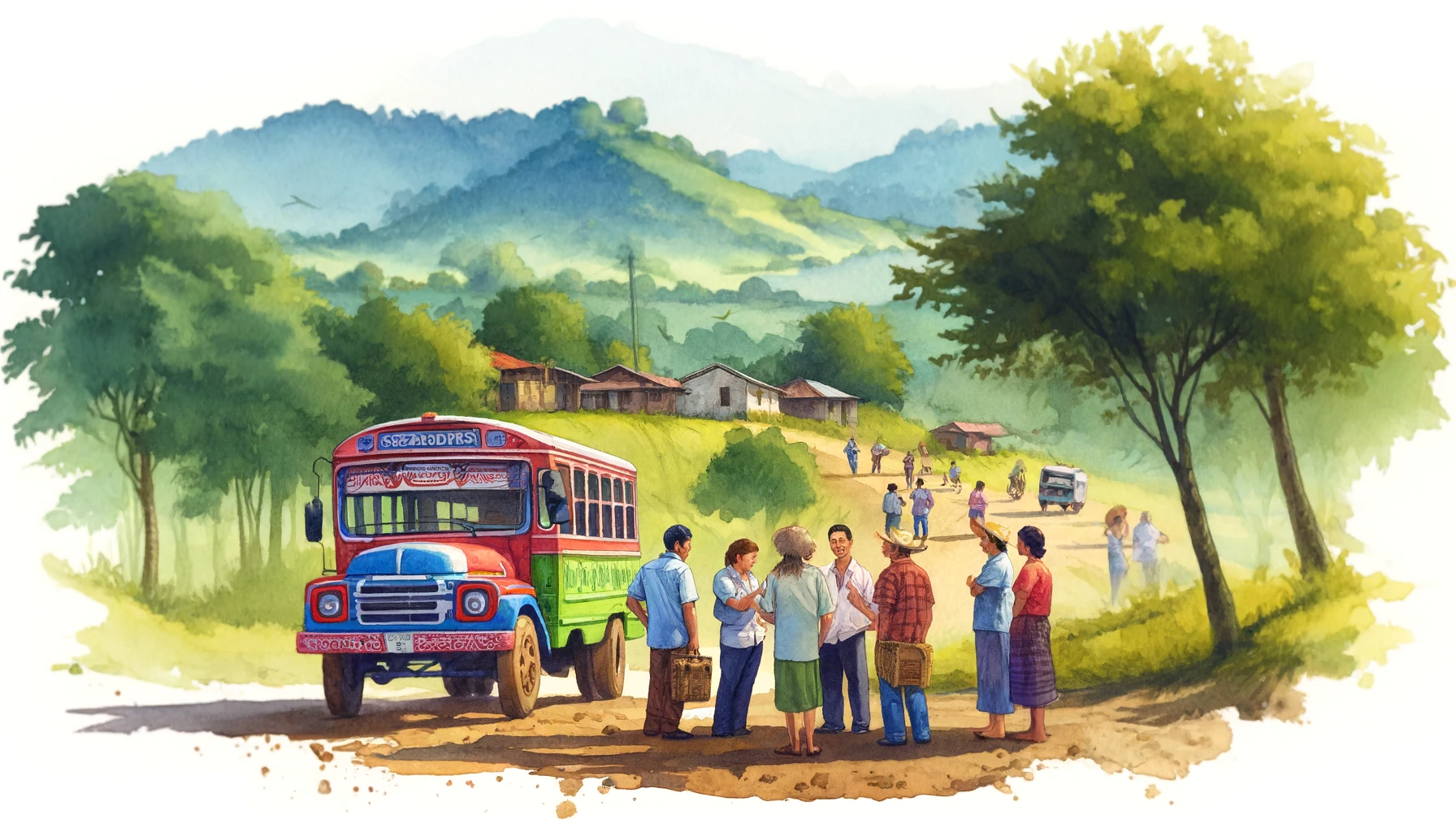I still remember my introduction to Spanish as spoken in rural Costa Rica. I had a good, but inflexible vocabulary, with one word in Spanish for most nouns and verbs. Cerdo was the word for pig, until it wasn’t. No one called their pig a cerdo. Chancho was the word I heard over and over.
Same with turkeys, which I called pavos, until I heard everyone referring to them as chompipes. Chunche became my new word for any random thing you did not have a name for, joining cosa in my expanding vocabulary. A good-looking person was not only bonito or guapo, but also chulo. (The ‘ch’ is a popular go to sound in Spanish slang; in fact, pronounced ‘che’, it was once a separate letter of the Spanish alphabet).
When I walked to town, I said I was going to town ‘a pie’. Everyone else used the term ‘a pata’. Pie is foot, pata is (animal) paw, except when you are walking somewhere in the campo. Another word from the campo I love is Cazadora. This is the word for a bus that travels the rural routes in the more remote areas of the country and stops to pick up or let off people at just about any point along the road.
These buses rarely hit speeds of more than 60 KPH (40 MPH), because just about the time the driver has the bus accelerating, someone is ringing for a stop or someone is standing on some lonesome stretch of the highway, hailing the bus.
With over a billion (1,000,000,000) native or second language speakers worldwide, Spanish is a dynamic language. Spoken on every continent, a potent mix of influences and cultures from which new words or phrases enter the Hispanophone vocabulary. In Costa Rica, you may encounter Spanglish words.
The first Spanglish word I ever used here was ‘chapeando’, to chop and cut (high) grass. Proud of my increasing vocabulary, I used the word in front of my landlady, a middle-aged woman from Spain, living in the San Jose area. She cut me off. Made a distasteful face like she smelled a rotten egg.
That word does not exist in Spanish, she let me know. But everybody uses it now. Likewise, the word tuanis is from the English ‘too nice’. It means the same thing. It can be used in place of Pura Vida, if you tire of hearing the national slogan. For me, mejenga meant an informal game of soccer, played anywhere– on the beach, the field, the street. But it has evolved to mean any game of soccer. Someone might ask who won the mejenga between Saprissa and Perez Zeledon.
Trabajo is work. And so is brete. And chamba. Que colera means anger. So does Que chicha. ‘A cachete’, I recently learned, is used to signify someone or something is doing well. (More of those ch slang words). Someone recently asked me (in reference to a project), “Como esta el arroz?” I don’t eat much rice, so I did not understand that he was simply inquiring on how my project was going.
Had I understood, I may have answered that rice was not yet cooked. Speaking of food, if you hear someone referred to as a ‘Come huevos’, it does not mean they eat a lot of eggs. It means they are cheap, demanding, like a tiresome restaurant customer who always complains and never tips.
My personal favorite all time slang word is an English (Scotch-Irish) name that has made its way into local Spanish as both noun and verb. From the old TV show whose star could improvise any type of repair or invention, I give you ‘McGyver’ (pronounced mih-GEEVER).
To do a temporary repair or a quick patch up job is to do a McGyver. Or to make it a verb, McGyverando. I know a mechanic whose nickname is McGyver.
He always fixed my car well enough, though I wondered sometimes if McGyver was McGyverando the repairs. I have a few appliances in my house that continue to function due to some McGyvers that have stayed fixed.
Tuanis






